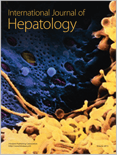
International Journal of Hepatology
Scope & Guideline
Unveiling critical research to transform liver care.
Introduction
Aims and Scopes
- Noninvasive Diagnostic Techniques:
The journal frequently publishes studies evaluating noninvasive methods for diagnosing liver conditions, which are crucial for improving patient care and reducing the need for invasive procedures. - Liver Transplantation and Management:
Research related to liver transplantation, including donor-recipient compatibility, postoperative outcomes, and management strategies for transplant patients, is a significant focus area. - Chronic Viral Hepatitis:
The journal addresses chronic viral hepatitis, particularly Hepatitis B and C, including studies on epidemiology, treatment outcomes, and public health implications. - Liver Cancer Research:
A substantial portion of the research is dedicated to hepatocellular carcinoma, exploring its pathology, treatment options, and prognostic markers. - Metabolic Liver Diseases:
The journal covers metabolic-associated liver diseases such as Nonalcoholic Fatty Liver Disease (NAFLD) and its progression, highlighting the role of metabolic factors in liver pathologies. - Patient Education and Awareness:
Studies that assess knowledge, attitudes, and practices regarding liver health among healthcare professionals and the general public are also included, emphasizing the importance of education in disease prevention.
Trending and Emerging
- Integration of Biomarkers in Diagnosis and Prognosis:
There is an increasing emphasis on identifying and validating new biomarkers, such as miRNAs and glycosylation markers, for diagnosing and predicting liver disease progression. - Impact of Comorbid Conditions:
Recent studies are exploring the interplay between liver disease and other comorbidities, such as kidney disease and HIV, highlighting the need for comprehensive management strategies. - Public Health Initiatives for Viral Hepatitis:
Emerging themes include the effectiveness of public health initiatives aimed at screening and treating chronic hepatitis, particularly in underserved populations and high-risk groups. - Metabolic Factors in Liver Disease Progression:
Research focusing on the metabolic aspects of liver diseases, including the role of obesity and metabolic syndrome in conditions like NAFLD, is gaining traction. - Patient-Centric Care Approaches:
There is a growing trend towards patient-centered research, assessing patient attitudes and practices regarding liver health, which is crucial for improving health outcomes.
Declining or Waning
- Acute Liver Failure Research:
There has been a noticeable decrease in studies specifically addressing acute liver failure, which may indicate a shift towards more chronic liver disease research. - Traditional Hepatotoxicity Studies:
Research focusing solely on traditional hepatotoxic agents has diminished as newer insights into liver injury mechanisms and nontraditional agents gain prominence. - Hepatitis E and Other Less Common Viral Hepatitis:
Publications on Hepatitis E and other less common forms of viral hepatitis have decreased, possibly due to a growing focus on more prevalent conditions like Hepatitis B and C. - Invasive Diagnostic Procedures:
Research on invasive diagnostic techniques has become less common as noninvasive methods gain acceptance and demonstrate efficacy in clinical settings.
Similar Journals

Translational Gastroenterology and Hepatology
Connecting Research to Real-World Solutions in Hepatology.Translational Gastroenterology and Hepatology, published by AME Publishing Company, stands as a pivotal platform for advancing the understanding and treatment of gastrointestinal and liver diseases. With its focus on translational research, this journal aims to bridge the gap between laboratory discoveries and clinical applications, thus fostering improvements in patient care. Although specific metrics like H-Index and Scopus ranks are currently unavailable, the journal is committed to maintaining high standards of scholarly communication and excellence. As an open-access publication, it ensures that valuable findings are readily accessible to a global audience, promoting collaboration and innovation among researchers, clinicians, and healthcare professionals invested in gastroenterology and hepatology. The journal's dedication to disseminating groundbreaking research makes it an essential resource for those seeking to stay at the forefront of these ever-evolving fields.
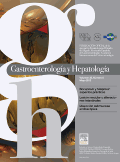
Gastroenterologia y Hepatologia
Advancing knowledge in gastrointestinal and liver health.Gastroenterologia y Hepatologia, published by Elsevier España SLU, is a distinguished journal dedicated to advancing the fields of gastroenterology and hepatology. With a publication history spanning from 1982 to 2024, this journal is recognized for its commitment to disseminating high-quality research and reviews that address critical developments in the diagnosis and treatment of gastrointestinal and liver diseases. Although it currently ranks in the Q3 quartile in both gastroenterology and hepatology based on the 2023 metrics, the journal continues to attract a global audience of researchers, healthcare professionals, and students eager to engage with the latest findings. The journal is accessible in both print and electronic formats (ISSN: 0210-5705), making its valuable insights reachable to a broad spectrum of subscribers. By fostering a platform for rigorous scholarly communication, Gastroenterologia y Hepatologia plays a vital role in shaping the future of research in these essential medical fields.
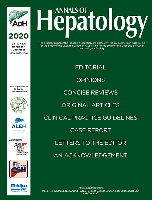
Annals of Hepatology
Connecting researchers and clinicians in the quest for liver health.Annals of Hepatology is an esteemed open-access journal dedicated to the dynamic field of liver research and hepatology. Published by Elsevier España since 2002, this journal has established itself as a pivotal resource for researchers and clinicians alike, boasting a remarkable impact in the medical community with its 2023 rankings placing it in the Q2 quartile for Hepatology and Q1 quartile in Medicine (Miscellaneous). With an impressive Scopus rank of #20 out of 82 in the field of Hepatology and a notable 76th percentile standing, the journal is committed to disseminating high-quality, peer-reviewed articles that advance the understanding of liver diseases and their management. The editorial scope encompasses a broad range of topics, including liver pathology, therapeutic interventions, and public health implications related to hepatic disorders. Researchers, healthcare professionals, and students interested in the latest advancements in hepatology will find Annals of Hepatology an invaluable platform for sharing and accessing knowledge, with the convenience of open access enhancing global visibility and collaboration in this critical field of medicine.
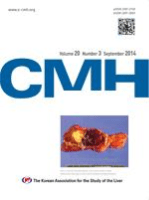
Clinical and Molecular Hepatology
Exploring the frontiers of liver disease research.Clinical and Molecular Hepatology, published by the Korean Association for the Study of Liver, stands at the forefront of hepatology, offering a significant platform for research and innovation in liver diseases. Established in 1995 as an open access journal, it aims to disseminate high-quality research that spans the fields of hepatology, molecular biology, and medicine. With an impressive impact factor ranking it in the Q1 category for 2023 in both Hepatology and Molecular Biology, the journal facilitates a rich exchange of knowledge among professionals, researchers, and students globally. With its dedicated coverage from 2012 to 2024 and exceptional Scopus rankings placing it within the top 10% of journals in its field, Clinical and Molecular Hepatology is an indispensable resource for advancing the understanding and treatment of liver conditions. Located in Seoul, South Korea, the journal emphasizes rigorous peer review and is committed to enhancing clinical practice and molecular research, making it an ideal venue for groundbreaking studies in liver health.
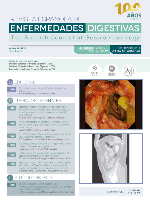
REVISTA ESPANOLA DE ENFERMEDADES DIGESTIVAS
Advancing the frontiers of digestive health.REVISTA ESPANOLA DE ENFERMEDADES DIGESTIVAS, a pivotal Open Access journal published by ARAN EDICIONES, S A, has been at the forefront of advancing the field of gastroenterology since its inception in 1990. With a robust commitment to disseminating high-quality research, the journal provides a platform for researchers, clinicians, and students to share innovative findings and insights concerning digestive diseases. The journal is characterized by its Q3 ranking in both Gastroenterology and Miscellaneous Medicine categories, indicative of its significant contributions to these fields, and is positioned within the 36th percentile of Scopus rankings for medicine related to gastroenterology. Based in Spain, REVISTA ESPANOLA DE ENFERMEDADES DIGESTIVAS has embraced the Open Access model since 2004, ensuring that its articles are readily available to a global audience without financial barriers. The journal not only supports academic discourse but also plays a crucial role in improving clinical practices and health outcomes related to digestive health.
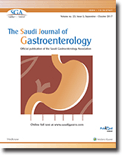
Saudi Journal of Gastroenterology
Empowering knowledge for better digestive health.The Saudi Journal of Gastroenterology is a premier platform dedicated to advancing research and clinical practice in the field of gastroenterology. Published by Wolters Kluwer Medknow Publications, this open-access journal has been serving the academic community since 1995 from its base in India. With an ISSN of 1319-3767 and an E-ISSN of 1998-4049, the journal allows unrestricted access to a wealth of knowledge, fostering an environment where researchers, professionals, and students can engage with cutting-edge studies. As of 2023, it is categorized in the Q3 quartile within gastroenterology, ranking #74 out of 167 in Scopus, which places it within the 55th percentile of its field. The journal aims to disseminate significant findings, clinical trials, and innovative theories that shape the understanding of gastrointestinal disorders and practices. With a commitment to quality and relevance, the Saudi Journal of Gastroenterology is pivotal for anyone seeking to enhance their knowledge and expertise in this vital area of medicine.
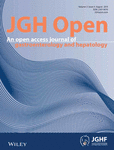
JGH Open
Unlocking Insights in Gastrointestinal HealthJGH Open is a prominent open-access journal dedicated to advancing knowledge in the fields of Gastroenterology and Hepatology, published by WILEY. Since its inception in 2017, the journal has served as a crucial platform for researchers, professionals, and students to disseminate innovative research findings and clinical insights. With an impact factor and Scopus rankings reflecting its steady growth—ranking in the 3rd quartile for both Gastroenterology (Q3) and Hepatology (Q3)—JGH Open is positioned within the competitive landscape of medicine. Its commitment to open access enhances the visibility and accessibility of high-quality research, ensuring that significant advancements in understanding diseases of the gastrointestinal tract and liver reach a broad audience. With a focus on collaboration and dissemination of knowledge, JGH Open aims to contribute to the global discourse and improve outcomes in gastrointestinal health.
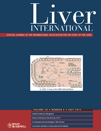
LIVER INTERNATIONAL
Advancing hepatology through cutting-edge research.LIVER INTERNATIONAL, with its ISSN 1478-3223 and E-ISSN 1478-3231, is a prestigious peer-reviewed journal published by Wiley in the United Kingdom. Established in 2003, it focuses on advancing the field of hepatology, covering a broad spectrum of topics including liver disease, hepatocellular carcinoma, and transplantation. Ranking #10 out of 82 in the Scopus category for Medicine - Hepatology and boasting a remarkable 88th percentile, LIVER INTERNATIONAL has secured its reputation as a leading journal, recognized as Q1 in the 2023 category quartiles. The journal emphasizes accessibility, offering an open access option to ensure that critical research findings reach a wider audience. By facilitating the dissemination of high-quality research, LIVER INTERNATIONAL plays a vital role in shaping contemporary hepatological discourse and bridging academic inquiry with clinical practice, making it an essential resource for researchers, healthcare professionals, and students alike.
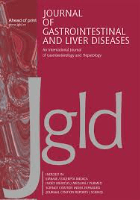
Journal of Gastrointestinal and Liver Diseases
Championing Comprehensive Understanding in GastroenterologyThe Journal of Gastrointestinal and Liver Diseases, published by MEDICAL UNIV PRESS in Romania, serves as a pivotal platform for the dissemination of significant research in the fields of gastroenterology and hepatology. Established in 2006, this journal has evolved over the years, currently holding a Q3 rank in Gastroenterology and a Q2 rank in Medicine (miscellaneous), reflecting its commitment to high-quality scholarship and impactful contributions to medical science.
With an ISSN of 1841-8724 and an E-ISSN of 1842-1121, the journal engages a diverse readership of researchers, clinicians, and students passionate about advancing knowledge in gastrointestinal and liver health. While it currently does not operate under an open access model, the journal remains a vital resource for those seeking to stay updated on the latest developments and emerging trends in the field. As it converges towards a broader impact, projected through its coverage until 2024, the Journal of Gastrointestinal and Liver Diseases continues to contribute to the academic landscape, encouraging innovation and comprehensive understanding in digestive health.
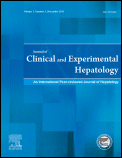
Journal of Clinical and Experimental Hepatology
Transforming insights into impactful liver care.The Journal of Clinical and Experimental Hepatology, published by Elsevier - Division Reed Elsevier India Pvt Ltd, is a premier platform dedicated to advancing the field of hepatology. With an ISSN of 0973-6883 and an E-ISSN of 2213-3453, this journal has gained recognition for its impactful contributions to both clinical practice and scientific research in the domain of liver health. Ranking in the Q2 quartile for Hepatology in 2023 and positioned at 33rd out of 82 in Scopus’s Hepatology category, it reflects a robust impact factor and a commitment to publishing high-quality, peer-reviewed articles. Researchers, clinicians, and students can engage with a wealth of open-access content covering the latest advancements, challenges, and insights in hepatology, as the journal aims to disseminate knowledge from 2011 through 2025. Join the community of experts as we explore critical developments in the understanding and treatment of liver diseases.